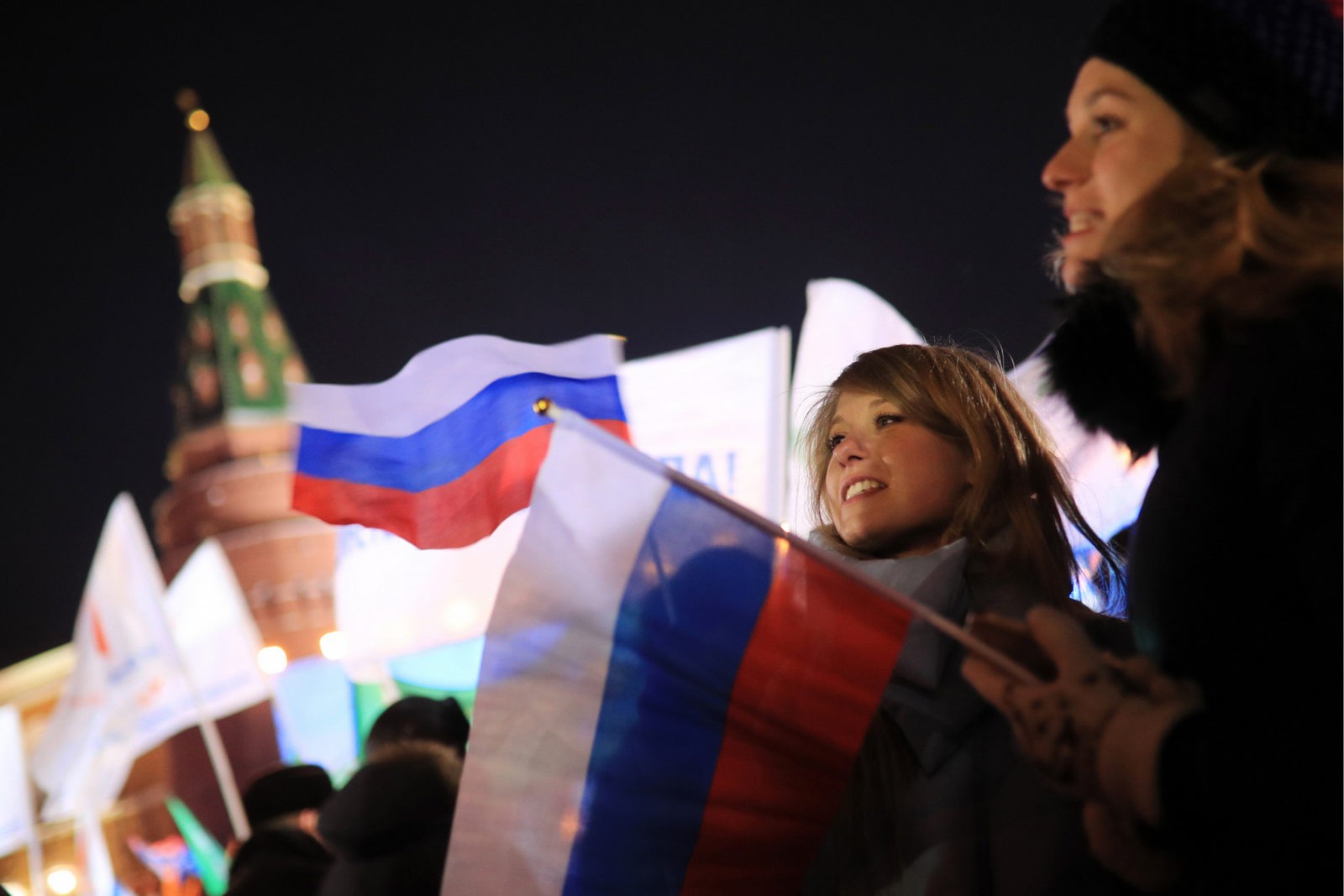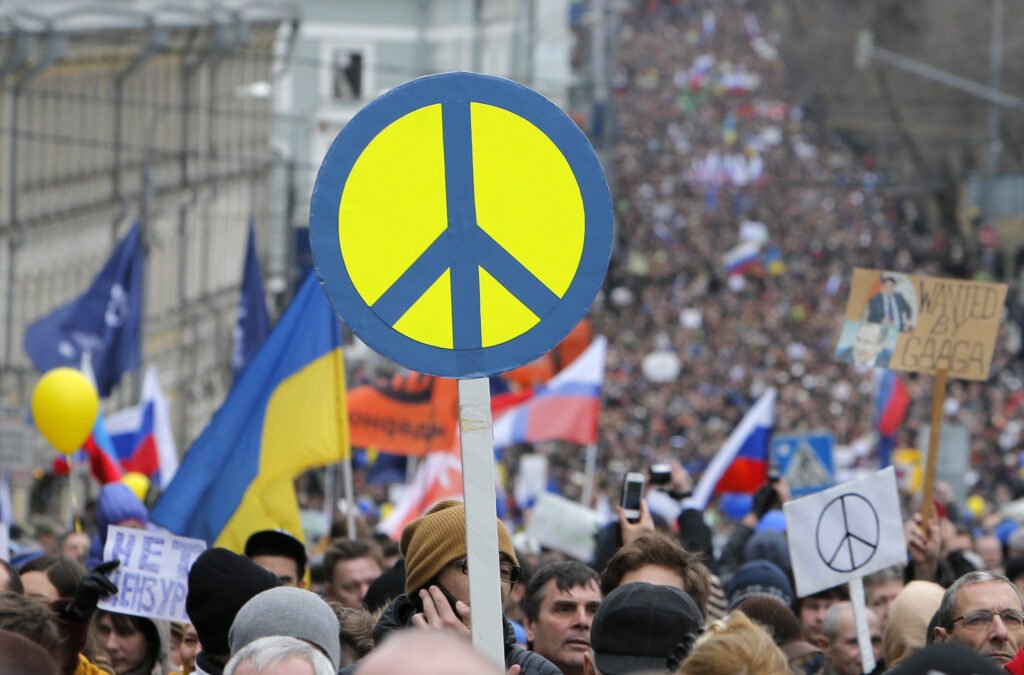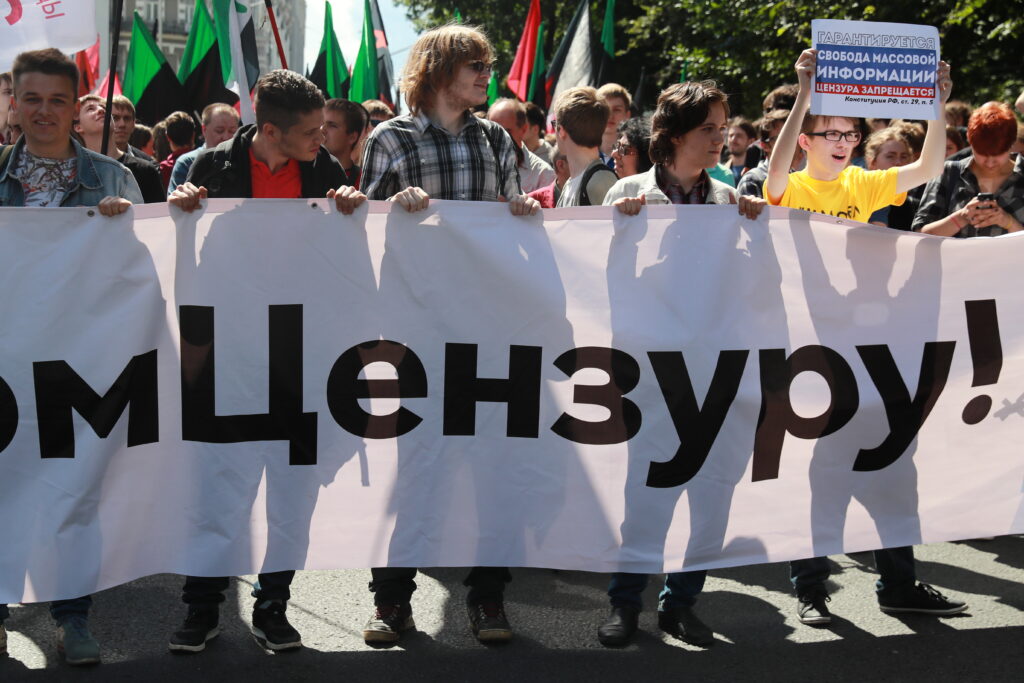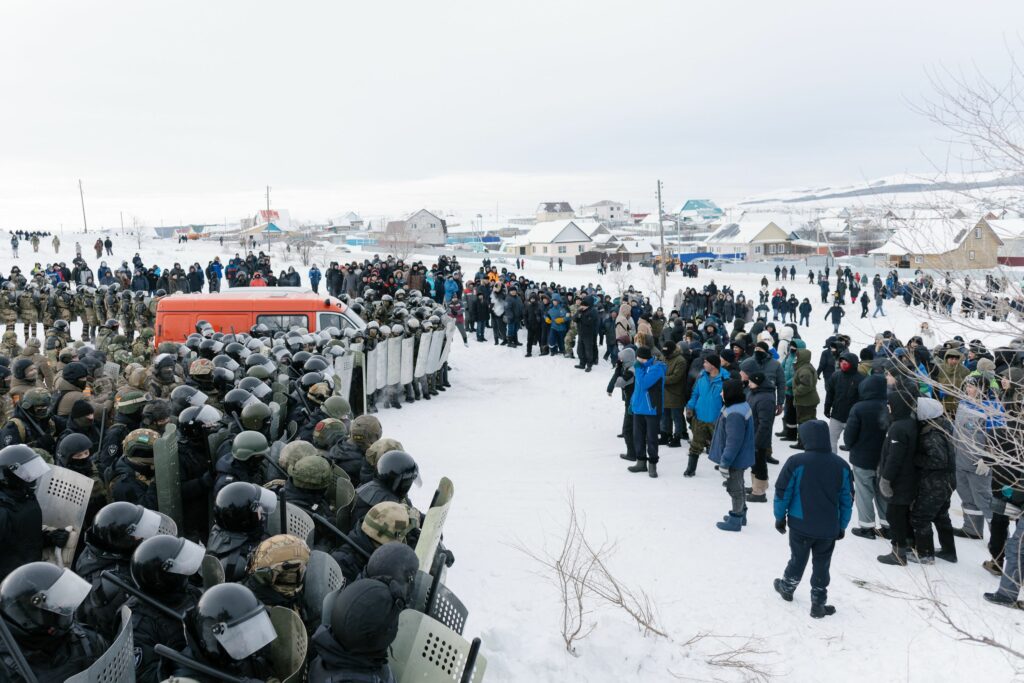Talk about Russian ’youth’ usually assumes one of two modes: either they are easily mobilised by patriotic rhetoric to support the state, or, on the contrary, about to form a progressive vanguard to bring down a corrupt regime. In each case I take a contrarian position. Not for the sake of it, but on the basis of some very old ideas in social research – the difficulty in even defining youth, and the mistake of thinking in terms of group consensus or even cohesive identity.
Consider this question – is ‘youth’ more than just a word? Then turn things around – if you’re in your early 40s, are you middle-aged? You probably don’t feel that way. You’re 60. Are you old? I guess you don’t think so. Why then do we expect people who are 20, or 25 identify as ‘youth’? Or even hold positions or perspectives that are coherently similar or relating to others in such a ‘cohort’. The label of ‘youth’ is invariably deployed by a more powerful group, as a label of insufficiency, of incompleteness. And yet as a term it is frustratingly lacking in explanatory power.
My ethnographic writing on Russia bears out such scepticism. I researched Russians in their 20s in an industrial town in Kaluga Region in the early 2010s. I have also researched relatively privileged and educated young people from St Petersburg and Moscow as part of collaborative projects with Russian sociologists. The people I speak to differ in some ways and are similar in others. In both ‘cases’ I found both political radicals and conservatives. Moreover, in equal measure I met both ‘individualists’ and ‘collectivists’. The best I can do in terms of commonalities is point to a deep need to express young people’s love for and sense of connection with their country, to engage in some way civically. In most cases, whatever their political stripe, youth are conscious that this is quite difficult, if not impossible in today’s Russia. As a ‘public institution,’ youth are objectified by the state either as a ‘problem’ or as a potential group for mobilisation. In either case, they acutely feel that they are incomplete citizens due to the highly personalised and patrimonial nature of access to opportunities, social mobility and privilege.
Much has been written in the last few years about the visibility of young people in political and social protests in Russia. Who are these people and where do they come from? Undoubtedly this is a metropolitan phenomenon, despite people – including the young Muscovites I speak to – insisting that the mobilisation of youth in places like Omsk is important in showing that protest is not just the preserve of the metro-middle-class. However, when I ask these young people the last time they spent time outside Moscow (where I do most of my research) they stumble. There is a real disconnect here. And while they deny it, these sincere and dedicated youth let slip a sense of moral, intellectual and political superiority. There’s nothing wrong with that; it’s just that they would never really consider the idea of building a coalition with other young people. Their interests are dominated by identity politics dictated by privileged backgrounds. When one young woman told me that her strong and vocal opposition was based on personal experience of suffering, it turned out that what she was referring to was the anti-gay propaganda law. I probed further – what about inequality of opportunity, about blocked horizons for youth without connections? But my 20-year-old students were quite clear that they personally were not, and would not be affected by these, undeniably real, problems. They still believed they could succeed by merit in Putin’s Russia, without ‘connections’. And while they may be personally right, reality tells a different story. Politically engaged and fervent in their opposition, they were also naïve. They were already sophisticated operators in the Moscow market for opposition: ‘Navalnyi is a means to an end. We can go to a rally without endorsing his candidature’. But their sophistication was that of the bubble network of Moscow. These were the children of what Simon Kordonsky calls the genuinely ‘free’ and active middle-class, which only exists in big cities and is a marginal ‘estate’ in the stratified system. They have the most to lose from further political tightening for they exist in a narrowing niche, which emigration is further eroding (in a small sample, small numbers matter). But most consciously make a choice that emigration, for now, is not for them. Indeed, they say, just as proudly as any, that they are civic patriots and that it is youth that has a responsibility to take personal moral responsibility for its country. In general a sense of ‘belonging’ as an urge is important, but searches in vain to connect to a suitable civic meaning. As one young interviewee in my 2013 research commented: ‘I do not feel like a citizen. A citizen is someone connected to the state. The state is formed of power… politics… I would not like to be a citizen… the state is over there somewhere and I am here. We exist separately.’
There are other niches as well, more representative of transition to adulthood in Russia. The most important is in the vast semi-formal and informal economy where permanency of employment is unknown. Many survive in a position of economic precarity due to lack of opportunities or the right connections. These include potential allies of the ‘oppositionist’ minded youth: like the IT programmer I know in his 20s, living from gig to gig. Most however have a lower level of education, but that doesn’t mean they aren’t also consciously wary of the state. Earning money in the black economy can carry political meaning. For the plumbers, electricians, taxi-drivers and even underground factory workers of my research, it’s more than a convenience that the state is at arm’s length. It obviates any necessity to make political compromises. It’s a form of freedom, impoverishing and precarious as it is. They make their own society of ‘opposition’ in the back of ersatz taxi-cabs, in garage blocks, and on the summer village plots.
Even for those in nondescript blue- and white-collar employment, there is a sense of apartness from ‘society’ or politics. Is that any different from other countries? Well, no. But, the accelerated entry of these ‘ordinary’ (male) youth to the adult world – through the army and then encountering the ‘system’, where they see first-hand the difference in progression between those with pull and those without — makes them cynical and wary of the oppositionist youth.
Young women are a different story – there is more buy-in to the ideal of social mobility through educational achievement, which is sometimes turns out to be real but more often, illusory. Youth divisions in a belief in social mobility, and by extension a belief in the ’system’, would be an interesting topic for sociologists to explore in terms of a gendered conformity/non conformity.
However, there is a third niche for youth that’s more important than ever given the vast resources apportioned to it, and that is the security apparatus. Here I set aside the marginal projects like the abortive ‘Nashi’ movement or the more recent ‘preventative’ work of the Youth Army. I mean the opportunity given (a job, a salary, maybe even a shortcut to a flat) by an ordinary job in the interior ministry troops or special purpose police. Look at the faces of the policemen next time they’re called out to a rally in Moscow. These are the same future-oriented, optimistic, and probably just as critically thinking youth as those they are arresting. One of the most academically gifted kids I ever met in my research actively chose a career in the security forces (after a stint in the army) as a way of escaping small town life. Was this out of political loyalty? Not at all. However, beyond the job security and opportunity, a sense of ‘belonging’ was certainly important.
Here we return to the common feature of all youth, the question of their subordinated place in the order of things and their need for more or less active citizenship. Even for our invisible citizens, theirs is often an actively ‘negative’ sense of citizenship, avoiding formal jobs and the ordering purview of the state. Throughout Russia’s history the idea of visible, or conscious roleness – of the idea of the active young person becoming a part of change, has been a vexed one. This time is no different.









